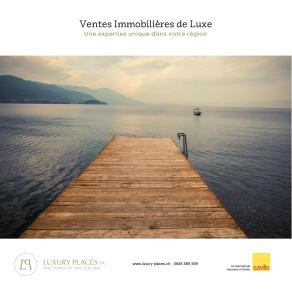

Obtaining a Permit B - Complete LFAIE Guide
Conditions for Obtaining a Permit B for the Purchase of a Primary Property in Switzerland
Purchasing a primary residence in Switzerland by non-residents is subject to strict regulations, including the requirement to obtain a residence permit, such as Permit B, unlike other countries that offer programs like the Golden Visa.
In this article, we guide you through the essential steps for obtaining this permit.
What is Permit B?
Permit B is a Swiss residence permit that allows its holder to live and work in the country. It is essential for non-Swiss individuals who wish to buy a primary residence in Switzerland. It is generally valid for 1 year for third-country nationals and 5 years for EU/EFTA citizens.
To maintain the validity of this permit, holders must effectively reside in Switzerland and not be absent from the country for extended periods (at least six months each year). This requirement ensures that individuals establish and maintain their primary life in Switzerland, in accordance with the regulations related to this type of residence permit.
How to obtain Permit B?
-
European Union (EU) or European Free Trade Association (EFTA) Citizenship
EU/EFTA citizens benefit from more favorable conditions for obtaining a Permit B due to bilateral agreements between Switzerland and the EU. They typically need to provide proof of employment or demonstrate that they have sufficient financial resources to support themselves and subscribe to Swiss health insurance.
-
Non-EU/EFTA Citizens
For nationals of third countries (non-EU/EFTA), obtaining a Permit B is more complex and subject to quotas. They often need to demonstrate exceptional professional qualifications or be sponsored by a Swiss company. The steps include:
- Employment Contract: A Swiss employer must prove that they could not find a suitable candidate among Swiss or EU/EFTA citizens.
- Financial Resources: The applicant must demonstrate that they have sufficient income to live in Switzerland without relying on social assistance.
- Health Insurance: Subscribing to Swiss health insurance.
-
Lump-Sum Taxation
Lump-sum taxation is often chosen by High-net-worth individuals (HNWI) and Ultra-high-net-worth individuals (UHNWI).
Lump-sum taxation (taxation based on expenditure) is a special tax regime intended for wealthy foreigners (HNWI + UHNWI) who wish to settle in Switzerland without engaging in gainful employment in the country. Under this regime, tax is calculated not on actual income, but on the taxpayer's annual expenditure in Switzerland.
Conditions for Lump-Sum Taxation:
- No Gainful Employment: The applicant must not engage in gainful employment in Switzerland.
- New Residents: The regime is reserved for individuals who settle in Switzerland for the first time or after an absence of at least ten years.
- Approval from Cantonal Authorities: The amount of tax is negotiated with cantonal authorities, and not all cantons offer this regime.
It is important to note that even under the lump-sum taxation regime, the holder of Permit B is expected to reside in Switzerland.
Learn More:




